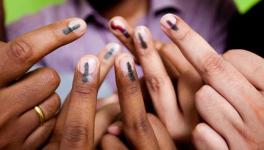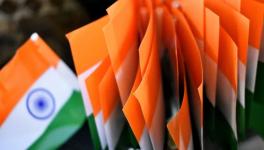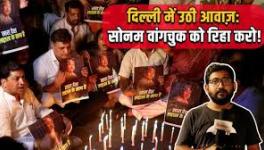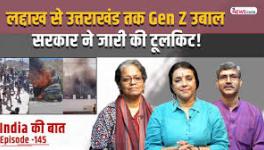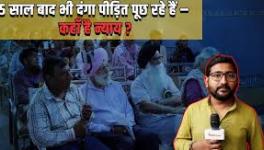Exposing Love Jehad
(This is a longer version of piece that originally appeared in www.aljazeera.com).
In an exclusive meeting, the victim of ‘love jehad’ from Meerut in North India confesses how she loved and how it was used to create religious divides in India
Two months after Meerut and Hapur districts of North India hit the headlines with the most sensational case of ‘Love Jehad’, S, the girl who was allegedly forcefully converted to Islam in the name of love, has confessed to the police that she was in love with Kaleem Shaikh, one of the five accused and wants to get married to him.
On the morning of October 12, 2014, S, left her house for the office of the Senior Superintendent of Police, Meerut. She was presented in front of the magistrate, Satya Prakash Rai, by the police where she recorded her statement that she was forcefully confined by her parents who objected to her relationship with Kaleem. She said she feared for her life and also sought police custody which was granted to her by the court.
Al Jazeera had met S on August 30 at her home where she not just confirmed her relationship with Kaleem but also how she feared for her life and faced immense harassment from her family and community who objected to her relationship with a Muslim. She also confessed how Kaleem is being wrongly framed. Al Jazeera did not publish this conversation earlier fearing for the girl’s safety, which has been taken care by the court now. We are also in possession of the audio recording of the conversation below.
Blowing up ‘Love Jehad’ in August, this year
On August 3rd, Sarawa village on the border of Hapur and Meerut districts in North India hit the national headlines for ‘Love Jehad’ when a girl claimed that she was allegedly gangraped in a Madrassa and forcibly converted to Islam. Her family registered an FIR claiming that she was abducted on July 23 and was raped on the same day by the village pradhan, Nawab, and four unnamed men. They also claimed that a local cleric Sanaullah was also present. There were surgery scars on her stomach. A mob of more than a thousand people with volunteers from Bajrang Dal, Hindu Jagran Manch, Shiv Sena and BJP gathered at the police station and within four days all those she had named were arrested. She later confessed that it was a surgery conducted for the removal of an ectopic pregnancy. Her statements kept changing in between.
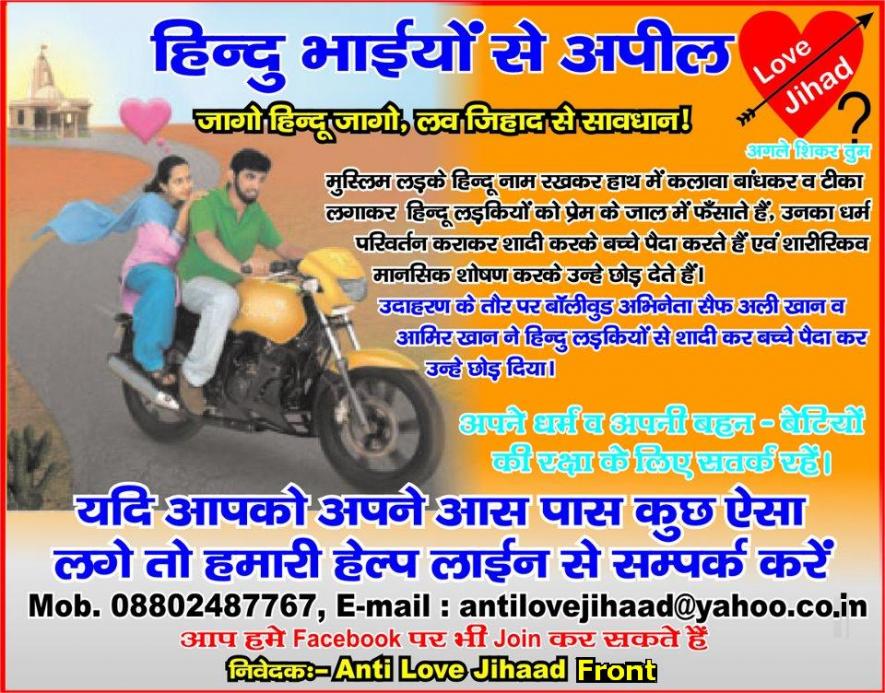
While the police are yet to file a chargesheet, the Hindutva propaganda of ‘Love Jehad’ since then is being used by right wing forces like BJP, RSS and Shiv Sena to divide and incite communal hatred. With no clear definition, the Hindu right wing claims that it is a ploy used by Muslim boys who may or may not conceal their religious identity to seduce Hindu girls, make them fall in love with them and get married to them and convert them to Islam. Shanthakaka, the head of Rashtra Sevika Samiti, the women’s wing of the RSS, in a training camp for its whole timers in December 2012, told this reporter, “Muslim boys are encouraged to elope with our girls. The money they are paid to elope and marry a Hindu girl depends on the caste of the girl. The remuneration for Rajput girls is Rs one lakh and for Brahmin girls is Rs two lakhs.” Girls from lower castes are not seen as a good ‘catch’.
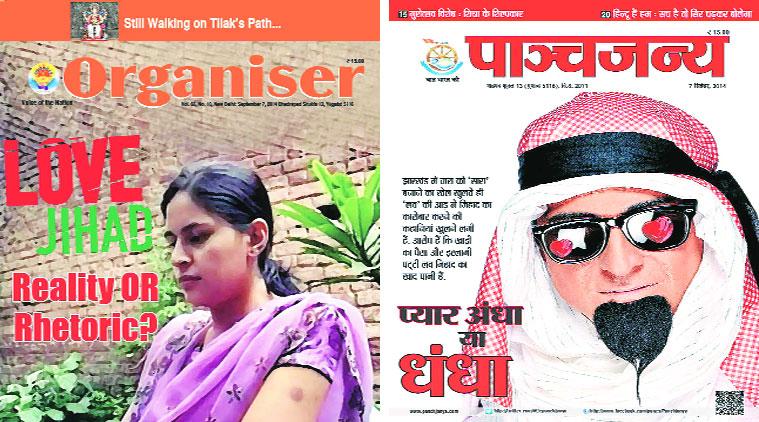
What S told Al Jazeera, a month back
S, a small, petite, insistent, confident, twenty year old girl is a graduate in Humanities. This reporter met her the day Mohan Bhagwat, the chief of RSS, in a conference on empowerment and emancipation of women insitsed that girls of the coming generation should be taught the meaning of ‘Love Jehad’ and how to save themselves from its trap. This is after a month she allegedly fell into the ‘trap.’
S had financially supported her family since the age of 15 by taking tuitions in the neighbourhood. Her father, N, 50, is a roadside bag retailer in Delhi’s busy Central Market in Lajpat Nagar. He is a Hindu Tyagi. Sarawa is largely dominated by the Tyagi community. Tyagi is a surname used both by Hindus and Muslims across the subcontinent. They trace themselves to Brahmin ancestors who left priestly occupations and took up farming or defence. The ones who converted to Islam later are known as Tyagi Muslims, or ‘Mesare’ or ‘Mura Tyagis’ locally.
With not enough land to support the livelihood as a farmer, he moved to Delhi and comes home every month. “The rents in Delhi are so high that I pile on my sister.” His wife,T, in her mid-forties is a housewife, the mother of S, and one more daughter, who has just completed school and a son in class XI. Since the incident, N has not gone back to Delhi and blames T’s illiteracy for not being able to ‘control’ S or attend to the incessant visitors since then, diligently.
In the final year of S’s graduation, last year, she decided to take up a job as a teacher in Sultania madrassa, one of the four madrassas in Sarawa. It is common in North Indian madrassa to have Hindu teachers or students. According to Delhi based Institute of Peace and Conflict Studies, there are an estimated 35,000 madrasas operating in India. Around 1.5 million students, including Muslims and Hindus, are enrolled in these madrasas.
When this reporter was allowed a private meeting with her in the presence of T, her mother, she told me, “I could have taught in a school in Hapur but the conveyance from the village to the city is a bit tricky. My friend P told me that there is a vacancy here, so I opted for this one.”
Like most private schools in India, S was promised a salary of Rs 1500 per month but paid less, Rs 1,200 and the rest was deducted for leaves and similar things. She worked for eight months before quitting, to appear for her final exams in April this year. “They were unwilling to give me leave because my papers had a lot of gap in between,” she tells. It is around the same time she had cleared the written paper for the UP Police exam for constables. She had to appear for the physical test soon and that is why she started going running everyday as a part of her training. It is then she had unusual bleeding during her menstrual cycle. “I told Kaleem that I keep feeling nauseated and am going through heavy periods. He said it could be because of strain from running,” she informs.
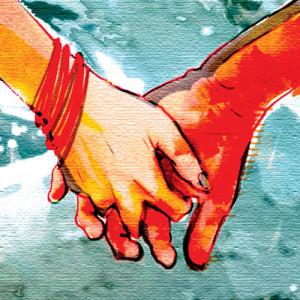
Kaleem Shaikh is a 23 year old boy from Uldhan village in Meerut district, ten kms from Sarawa. She says she met Kaleem through her friend Puja, who also taught in the same madrassa. Kaleem told her that he was graduating in Commerce this year and was really impressed by the fact that she is a teacher. This really struck a chord with S. “When I first met him, he told me that he liked me and wanted to be friends with me. I thought about it. It did bother me that he was a Muslim but he was so nice, caring and appreciative of my ambitions that I started meeting him more.” Meanwhile, her friend Puja got married to her boyfriend Shariq.
“She is so happy now. She is still continuing with her studies,” says S about Puja.
“Did she convert to Islam?” I asked.
“No. She still goes to the temple.”
In a few months, Kaleem and S fell in love. “He asked me ‘Don’t you think, we should move ahead in life. May be, get married? ”
Like Pooja, S too, discovered a possibility of life beyond social conservatism, religion and community along with a boy who understood her aspirations and cared for her.
“What about his religion?”I ask.
“By now, it did not matter to me. He had even told me that I can continue to practice Hinduism and visit temples even after we get married, ”says S as her mother T listens, seething with rage.
The day, S complained of heavy bleeding, they went to a doctor and her pregnancy was confirmed.
“So how did you get pregnant?” I asked for the record.
“With Kaleem,” she continues, “On July 23rd, I told my parents that I have to go for a college trip. The doctor told me that I had an ectopic pregnancy and it had to be removed immediately. We could only afford a government hospital. Kaleem and me registered as husband and wife and the surgery was conducted.”
“Did he take care of you while this happened?”I asked.
“Yes. He did and spent his own money also,” S replied.
It is important to mention that according to the Central Health Management and Information System of the National Rural Health Mission, the last available government data on abortions in India from 2008- 2009 suggest that a total of 11.06 million abortions take place in India both from rural and urban areas. S’s pregnancy or abortion was not a standalone incident. In fact, the statistics collected by Mumbai’s International Institute for Population Sciences (IIPS), a public health organisation, show that about 21 per cent of males and four per cent of females in rural areas admitted to pre-marital sex against an urban figure of 11 per cent of males and two per cent of females.
In the beginning of 2013, during the implementation of the Justice Verma Committee’s recommendations, the Bharatiya Janata Party (BJP) and Trinamool Congress objected to lowering the age of consent for sex from 18 to 16, on the ground that this is in conflict with “conservative norms” of Indian society.
“BJP is of the firm view that the bill should be passed in this session itself, but the provision lowering the age of consent to 16 years should be excluded,” a senior party leader said. Muslim organisations too slammed the proposal. Abdul Rahim Qureshi, assistant general secretary, All India Muslim Personal Law Board, was quoted saying, “It is an irony that government proposes to lower the age of consent to 16 when marriageable age for girls is 18. Sex outside marriage is detrimental to society.”
S and Kaleem, both had defied each of their religion’s views to explore their desires and sexuality. This clearly was the most potent tool unknowingly to irk societal norms and religious moralities.
S came back home after the surgery on July 27th . “My parents were very upset with me for staying out for four days. I was scolded and abused. I was told that I will be taught a lesson. I hadn’t told them anything about the surgery then.” The mother soon found sutures on her body and all hell broke loose.
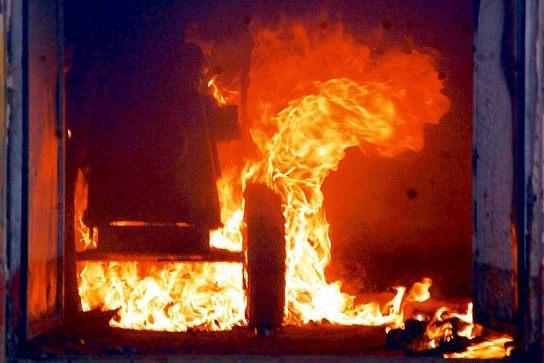
Sarawa is just 70 kms from Muzaffarnagar, which witnessed sectarian violence exactly a year back in that left hundreds dead and over a hundred thousand people displaced. The pretext of these clashes was saving the honour of Hindu girls from Muslim boys after a report that a Muslim boy allegedly eve teased a Hindu girl. The accused boy and the brothers of the girl were both murdered in separate incidents. Community councils held massive meetings attended by right wing political leaders and religious hate mongers. One such council gave calls like ‘Beti bachao, bahu bachao’ to ‘Beti Bachao, Bahu banao’ roughly translated and implied as ‘save your (Hindu) daughters and make theirs(Muslims) your daughter in law.’ The patriarchal overtones of this call and insistence force a husband’s identity on a woman is not a surprise. Most areas with equal population of Hindu and Muslim in the vicinity were most affected.
Locals claim that this is also the village of Bollywood actor Shahrukh Khan’s ancestors. This year, Sarawa had elected a Muslim ‘pradhan’, head of the village, Nawab, after the last two terms were held by the Hindu Tyagis. The Dalits and Muslims had unanimously voted him to victory. A few months after he took over, he assisted in changing the gate of a Mosque. Locals claim that the previous gate was too small to indicate the entry of the mosque so it was replaced by a big one. This was construed as an assertion of the Muslim identity in the village which angered the Hindu Tyagis. The Lok Sabha election campaign in Uttar Pradesh took communal politics and hate mongering to another level. The mosque’s gate became bigger and bigger in people’s imagination. Aurangzeb was cursed and invoked and the Tyagis were divided on religious lines.
When S, could not bear the taunts at home after the discovery of her surgery, the only immediate solution was marriage with Kaleem. With a complicated Special Marriage Act, that takes at least a month, the quickest, the most known and the easiest solution is a religious wedding which meant on paper conversion. S told this reporter that she signed the affidavit which said that she had changed her name to Bushra Jannat and was adopting Islam. S said she did this only to get married to Kaleem. But the family found out about it before her wedding. That is when the family approached the police station with a case of ‘Love Jehad’ along with members of Hindu Jagran Manch, Shiv Sena, RSS, Bajrang Dal, and other leaders. It was not tough to garner support in the already communally charged Sarawa. The newly elected pradhan, Nawab, was also named and is in jail since then.
“Where is Kaleem, now?” I wanted to know about him from S.
“In the jail. The police found records of our phone conversations and that is how arrested him. Why would he lie when he is getting beaten up by the police in jail, every day? If it is his mistake to love me so is mine then,” replies S with confidence in the presence of her mother.
“What do you want now?” I asked.
“I want justice. See, my life is anyway over. Wherever I live, I will always be surrounded with taunts about this whole incident. They anyway say that my body and womb is impure now. All kind of things one can imagine. I just want to know once what Kaleem wants to say about this. I want to have a face to face conversation with him and want him to tell me what he wants. I don’t want him to be punished for this. See, when you are in love with someone, you are equally responsible. 50-50, I should say. If we are wrong, we both should be punished. I am repeating myself that there should be justice. Why should I let him suffer all his life for nothing? People are saying that I don’t have a good character and I am doing it for money from the government. I don’t want that money. I want justice. And neither do I want to get married. My family has been taunting me that I was overtaken by bodily desires. They have called me the meanest possible names, I can’t even tell you.”
At this point T, S’s mother starts sobbing.
“Do you think, after all that has happened, Kaleem will still marry you?” I asked S.
“Didi, if he doesn’t then no one will. There is no man in this world who is so generous to get married to me after knowing what all has happened,” she stopped to ponder.
T continues to stare at her without a blink, fuming with rage.
“But, what if he wants you back. Will you go?”I asked.
“Yes, I will. Religion does not matter. He had no problem with me continuing with Hinduism and visiting temples after marriage. Whose religion is bad? No one’s. It is us who have divided people as Hindus and Muslims but actually we all are one.”
One of the important myths of Love jehad is that the Muslim boys convert Hindu girls to increase the population of Muslims. S’s claim that Kaleem had no problem with her practice of Hinduism bunks this myth.
On hearing this, T gets hysterical. She starts thumping her chest and crying loudly resorting to emotional blackmail most parents use against their children. She says, “If she gets married to a Muslim both me and her father will commit suicide.”
S replies, “Don’t cry. I have also cried. Had I not told the police that day, these people here would have killed me.”
S is referring to the rampant cases of honour killings in western Uttar Pradesh, Haryana and Uttar Pradesh on the diktats of khap panchayats and related caste councils. According to statistics from the United Nations, one in five cases a year of honour killings internationally comes from India.
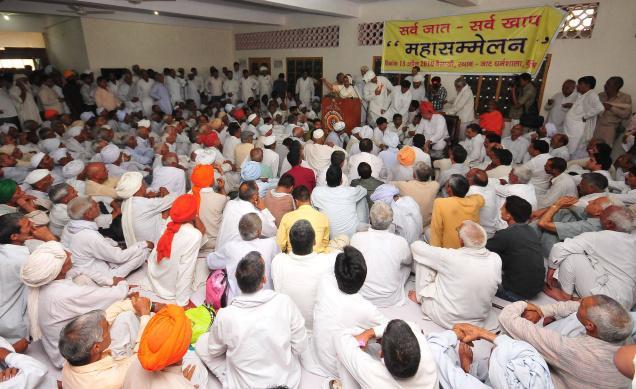
T is taken aback. She says, “No one kills their own daughter.”
S points a finger at her and shouts, “Neither did I elope and get married with anyone nor did I intend to bring dishonor to you. It is you who publicized all this. You called the media and you called the political leaders, I didn’t utter a word to anyone. If I am wrong, I should be punished. That is all I want to say. You decide what you want to do.”
With the conversation turning hotter and loud, S’father, N, steps in. He halts conversation and tells S and T to go inside.
S turns to him to say, “People anyway say that very soon either someone from the village will shoot me or kill me by pelting stones.” She leaves after that.
Aftermath
During the Lok Sabha election campaign early this year, Lalit Maheshwari, the head of the Vishwa Hindu Parishad’s Muzaffarnagar unit, mentioned in an interview with this reporter, “Young girls with mobile phones are the ones who bring dishonor to the family by chatting with boys. Parents should keep a check on that.” Although Maheshwari only repeats what several community councils, like the Khap panchayats, who have blamed cellphones for self-choice marriages, it is not a co-incidence that S was stripped of her phone after this incident and confined to the house to cut her from all communication from outside world including Kaleem.
The increasing number of self-choice marriages is proportional to the number of honour killings by caste councils in India, a clear indication of the society’s discomfiture with the young assertive women making their own choices. The Sangh parivar and its related outfits are then easily tapping into this societal conservatism to create communal divides.
Maheshwari also said in a recorded camera interview that ‘Once BJP comes to power, they will push towards a law to stop inter caste and inter religious marriages.” It is then not surprising that several sangh outfits have set up ‘Fronts’ to stop self-choice marriages which they have termed ‘Love Jihad.’ The Sarawa unit of the RSS’s Hindu Behen Beti Bachao Sangarsh Samiti was formed just a week after S’s case became public. Similarly, two weeks later, the Meerut Bachao Manch was formed by the RSS’s students’ wing ABVP, with the intention of creating awareness among Hindu girls against religious conversion.
The intentions behind both, in creating awareness amongst girls and protecting them, not just dismisses the individual agency of these girls but also aims to take life decisions on their behalf.
It is not surprising that post this incident no Muslim group has extended support to Kaleem. In fact, a month after this case, Muzaffarnagar was rocked by a case of what some Muslim clerics have called ‘reverse love jihad’ or the Hindu Dharma yuddha, when they alleged that a Hindu man had forced a Muslim girl to convert and elope to get married to him.
This is why, when this reporter tried to meet Kaleem, his lawyer, at the behest of his family, refused to facilitate it. A member of his family said, “We have nothing to do with him,” not because of the fictitious allegations of ‘Love Jehad’ by the Hindu right wing but the Muslim right wings’ prohibition on pre-marital sex and self-choice marriages.
The sparkling white limewash on the boundary walls of the house bang in the center of Sarawa village is hard to miss the eye. The house has ‘Laxmi-Ganesh’ tiles on its entrance, visibly of a Hindu. A small black gate neatly divides the wall into two. One side advertises for ‘Monu Tyagi’s taxi service’ with his contact details in green paint. The advertisement for ‘Madrasa Urdu Medium Mekhtab, Class 1 to 8’ in the same paint on the other wall has been recently rubbed off yet its traces are still readable. This is what the myth of ‘love jehad’ has done to this village of 7,000 people with equal population of Hindus and Muslims.
In the absence of a social reform movement that fights against this curious case of patriarchy that is finding dangerous roots in religion and politics to trample women’s choices and assertions, girls like S, who are choosing to look beyond caste and religion to make a life of their own, have a tough fight ahead.
Disclaimer: The views expressed here are the author's personal views, and do not necessarily represent the views of Newsclick
Get the latest reports & analysis with people's perspective on Protests, movements & deep analytical videos, discussions of the current affairs in your Telegram app. Subscribe to NewsClick's Telegram channel & get Real-Time updates on stories, as they get published on our website.











